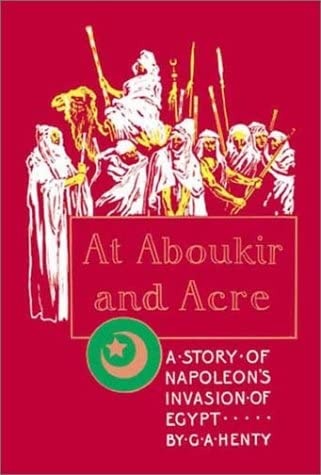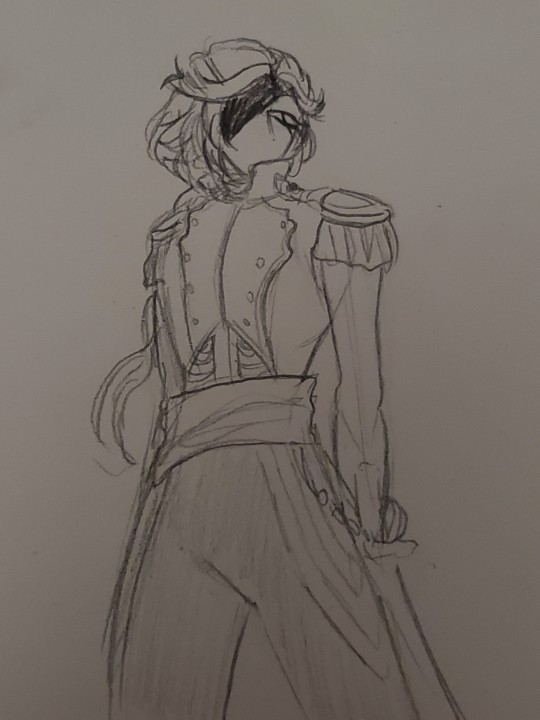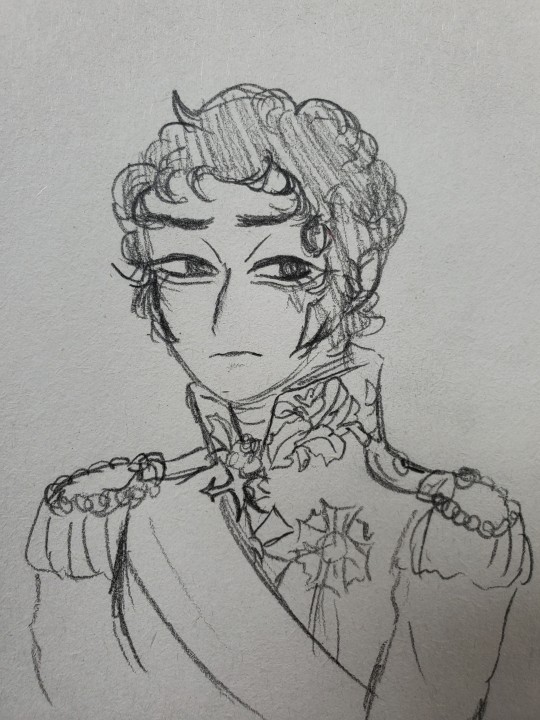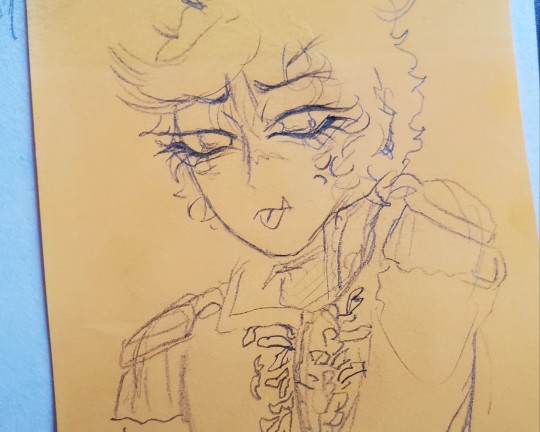#Louis Desaix
Text
Napoleon’s letter the day after the death of Desaix

“The news of the army is very good. I shall soon be in Paris. I cannot tell you more; I am in the deepest sorrow at the death of the man I loved and esteemed the most.”
— Napoleon
Source: Letters and Documents of Napoleon by J. E. Howard
#Louis Desaix#J. E. Howard#Howard#desaix#Letters and Documents of Napoleon by J. E. Howard#napoleon#napoleonic era#napoleonic#napoleon bonaparte#first french empire#19th century#french empire#Marengo#battle of Marengo#history#france#french revolution#frev#la révolution française#révolution française#2nd coalition#consulate#consul#first consul#quotes by Napoleon#Napoleon quotes#french history
39 notes
·
View notes
Text

he hadn't met Aimée yet 💔💔💔
#napoleonic era#napoleons marshals#napoleonic#napoleonic shitpost#louis desaix#louis nicolas davout#history shitposting#history memes
50 notes
·
View notes
Text



The Battle of Marengo (details) by Louis-François Lejeune
#battle of marengo#art#louis françois lejeune#napoleonic#louis desaix#napoleon#bonaparte#napoléon bonaparte#general desaix#history#france#austria#french revolutionary wars#napoleonic wars#hapsburg#french#austrian#austrians#europe#european#battle#soldiers#cavalry#habsburg monarchy#habsburg empire#habsburg#napoléon#napoleon bonaparte
66 notes
·
View notes
Note

Rating: Not Cute!
This Napoleon is heady after a great victory at Marengo and now he has to know that one of his best generals has died? At least let the Napoleon weep!
15 notes
·
View notes
Text
The Battle of Marengo
… as described by one Eugène de Beauharnais in his memoirs. For context: Eugène, aide-de-camp to general Bonaparte, had left Egypt with his stepfather, in Paris had helped to reconcile his mother with general Bonaparte and assisted (according to his memoirs, without completely understanding what was going on) at the coup d’état of 19th Brumaire. However, once Bonaparte had become First Consul, Eugène gave up his post as ADC, as soon as it dawned on him that this job from now on would mostly consist of hanging out in an antechamber and politely introducing guests to the head-of-state of France. Having decided that this was totally uncool, he had gone back to the military. At the time of the second Italian campaign, he was an 18-year-old capitaine de la Garde des Consuls, commanding a compagnie of chasseurs à cheval.
We’re starting the relation a bit before Marengo, with the entry into Milan, as Eugène claims to have met Desaix there one last time.
I assisted at the combat of Buffalore, commanded by general Murat, who showed great vigour in this crossing of the Tésin [Ticino]; the enemy was pushed briskly up into Milan, where we entered in a jumble with his light troops. I made with my company a rather fine charge to force the enemy, who still held the field, to return to the citadel of Milan.
We remained three days in Milan, where the First Consul was occupied in reorganising the republican government; after which we proceeded to Pavia. General Lannes had made the crossing of the Po, about a league below this city. General Desaix had just arrived from Egypt and joined the army at Pavia, at the very moment when the First Consul left; as the troops of the guard were not to cross the Po until the night, I had time to go and see him. As a companion in arms from Egypt, we were delighted to meet again, and general Desaix treated me very well. He spoke to me much about the campaign which was opening and the command which he hoped to obtain; it seemed, moreover, that he foresaw his imminent end, for he uttered this singular statement : "Formerly, the Austrian bullets knew me, I am afraid that they may not recognize me any more."
We crossed the Po during the night, and the next day I was sent with my company, by Stradella, in the direction of Piacenza, to establish communication with general Murat, who had crossed the Po at this point and had effectively seized this city. The next day the affair of Montebello took place, which did so much honour to General Lannes; but I arrived too late to take part in it. The following evening, we pushed in the direction of Alexandria as far as Marengo, where there was a small combat to force the enemy to pass again the Bormida and to abandon this line. The day was very stormy and we had much difficulty in passing the Scrivia whose waters had become very rough. I witnessed the reports which several officers came to make, in the evening, to the first consul, at his bivouac. All agreed in saying that the enemy was withdrawing in haste and that he had broken all his bridges on the Bormida. The first consul had it repeated several times to be more sure, and it was in consequence of these false reports that he directed on Genoa the corps of troops of which he had just given the command to general Desaix in order to lift the siege of this important place, if there was still time.
But, the next morning, when a heavy cannonade was heard on the side of Alexandria, we were quickly drawn out of our error. Soon the first consul learned that the enemy was emerging in force on the plain of Alexandria, and that a great battle was inevitable. One can estimate the anxiety of the general in chief and the anger which he felt at the false reports which had been made to him the day before. Orders were dispatched in all haste to recall general Desaix, who was found near Novi, and who, in spite of this distance, still arrived in time to take part in the action and to decide the winning of the battle. I mentioned this circumstance because it exonerates the first consul from the reproach of improvidence which was made to him in several reports of the battle of Marengo. Those who have had great military commands know what the fate of battles depends on, and how an unforeseeable accident can disturb the best and most skilful combinations.
Our movement of retreat began towards midday and continued until four o'clock; it is during this time that the guard began to take a more active part in the affair. The troops of the line were tired and discouraged; the first consul sent us to support them; we carried ourselves sometimes on the left, sometimes on the right, according to the need; general Lannes, pressed a little sharply by the enemy, wanted to have us make a charge which did not succeed; he had in front of him two battalions and two pieces of artillery behind which was a mass of cavalry in close columns; his troops withdrew in disorder, so that, to give them time to breathe and to rally them, he ordered colonel Bessières, who commanded us, to charge on the enemy column. The terrain was not very favourable, because it was necessary to cross vineyards; nevertheless we passed and arrived within rifle range of these two battalions, which awaited us arms in hand and in the best of spirits. Colonel Bessières, having drawn us up, was preparing to command the charge, when he realised that the enemy cavalry was deploying on our left and was going to turn us. Consequently, he made us turn back to the left, and we crossed the vineyard under the fire of grapeshot and musketry; but, having arrived on the other side, we held our ground well enough to impose on the enemy cavalry. General Lannes was very dissatisfied with this operation and complained bitterly about it. However it is probable that, if we had carried out his orders, few of us would have returned. During the retreat, my chasseurs were charged with destroying the ammunition which we were forced to abandon, and performed this mission with great intrepidity, often waiting until they were joined by the enemy to set fire to the caissons and then jump on horseback.
Finally, towards five o'clock, General Desaix joined us, and the First Consul was able to resume the offensive. The troops of General Lannes, encouraged by this reinforcement, reformed, and soon the offensive began as well as the retrograde march of the enemy. The cavalry of General Kellermann made a very beautiful charge on our left, and, towards the evening, the cavalry of the guard made one not less brilliant. Although the ground did not favour us, since we had two ditches to cross, we rushed with vigour on a column of cavalry much more numerous than us, at the moment when it was deploying; we pushed it up to the first bridges over the waters of the Bormida, always sabering. The melee lasted ten minutes: I was happy enough to get away with two sabre blows on my chabraque. The following day, the first consul, on the account which was given to him of this affair, appointed me squadron leader. My company had suffered quite a bit, because, of one hundred and fifteen horses which I had in the morning, I had only forty-five left in the evening; it is true that a piquet of fifteen chasseurs had remained near the first consul, and that many chasseurs, dismounted or slightly wounded, returned successively.
The day after this battle (June 15, 1800), an armistice was concluded as well as an agreement for the evacuation of Italy; the first consul returned on the 16th to Milan, from where we were at a distance of forty Italian miles; I was charged to escort him from the battlefield to Milan, by following the post. This race, of more than twelve leagues always at the trot and without unbridling, was so tiring, that I arrived at Milan with only seven men.
I hope this is helpful to anyone who’s interested.
#napoleon's family#eugene de beauharnais#Jean-Baptiste Bessières#jean lannes#louis desaix#Battle of Marengo#italy 1800
24 notes
·
View notes
Text
MALMAISON MEDIA SALON SOIRÉE 14: AT ABOUKIR AND ACRE (1898)

1. The Introduction
Hello, Dear Neighbors, and welcome back to Malmaison Media Salon. So, as I’ve said before, today we’re going to talk about a book by G. A. Henty, one of my archenemies!
Why archenemy?
That’s just how I label authors whose shit I reviewed before. Henty’s “wonderful” book about Frev left a bad taste in my mouth for a long time, so I was understandably mistrustful of any other piece of his.
However, after finding out he has one more Frev book AND several Napoleonic ones and this one (About the Egyptian Campaign, between the two eras), I had to make another review in spite of my lower than six feet expectations. So I went on Project Gutenberg to download the ebook for free. That’s where you can get it by the way.
But hey, maybe this book is better than the one I reviewed before. It’s always a possibility, right? The short answer is no. The long answer is not at all.
For an even longer answer, let us finally proceed with the review, which I dedicate to @koda-friedrich , @blackwidowmarshal123 and @aminoscribbles .
2. The Summary
As you might guess from the title, the book is set during the Egyptian campaign and, in classic Henty fashion, has a young English boy as the protagonist.
Edgar Blagrove, the boy in question, is a son of an English merchant who is left behind in Egypt during the war, so the book follows his adventures as he’s trying to survive, reunite with his family and have adventures along the way (as you do).
Even though Henty’s books are targeted at young boys, the premise sounds like something that I would actually enjoy, but I didn’t.
Let’s dissect this book to find out just how bad it gets, shall we?
3. The Story
The beginning isn’t so great. At first the opening scene promises some action, yet the immersion is broken like glass a couple of pages in with heaps upon heaps of Edgar’s backstory. Nice job, Henty…
Luckily, it’s the only time an extensive flashback like this is used, but the pacing can get about as fast as snail because often pieces of information get repeated in dialogues when nothing bad would’ve happened if the author avoided said repetition.
Moreover, while in the first half or so of the story the hero’s ways of getting out of problems stay realistic and justifiable, the second half has Edgar cross so far into Mary Sue territory that he may as well be called Gary Stu.
(Spoilers ahead)
This kid gets hired by SIDNEY FUCKING SMITH as a midshipman and interpreter. I’m not kidding, that’s an actual plot point!
Let me repeat: A kid who DID NOT previously serve in the navy is made midshipman and interpreter by SIDNEY SMITH, who meets said kid by pure coincidence! And only the interpreter part is justified, since Edgar was educated in several languages from a young age and learned the mother tongues of servants and citizens of Cairo too.
That, in all honesty, was the point where I just lost what little investment I had because it just became too apparent that everything will be fine and Edgar will have a happy ending.
4. The Characters
Before crossing the Gary Stu threshold, Edgar actually had potential to be a good character.
He is a reckless kid who was so bored with his monotonous life in Cairo that he wanted to see the English kick the French in the ass.
He cares about his friends, is kind and ready to help his loved ones and sometimes makes risky decisions.
But then he just becomes somebody who is always right and he gets too perfect. So all the potential goes down the drain like a dead goldfish. Hooray…
Sidi, an Arab boy Edgar rescues in the beginning of the story, is a bit more interesting, mainly due to his dynamic with Edgar as basically adopted brothers. He and his family provide Edgar with shelter in their oasis and help him out in a time of need too. Unfortunately, Sidi is a bit of a flat character for someone who gets a pretty major role in the story, but Henty isn’t too good with characters anyway.
Other characters are flat too. To various degrees. Unfortunately, that’s all I can say because there’s a ton of characters.
However, English officers like Nelson and Sidney Smith are whitewashed and glorified to no end. Henty loves sucking the dick of English nationalism, but I already saw that in my other review so no surprise there.
As for the French side of things… I was genuinely surprised that Napoleon was NOT portrayed as Devil Incarnate and it’s mentioned that he does care about his troops.
Many historical figures are name dropped but don’t appear in person, such as Kleber, Desaix, Junot, Menou, etc. Personally, I’m glad they don’t get a cameo in person for several reasons:
A) the book isn’t about them
B) it would be too unrealistic for Edgar to meet those people
C) after the atrocious portrayal of Montagnards, I DO NOT trust Henty with accuracy when it comes to French Republican generals
Eugene de Beauharnais is omitted once again, even though I’m pretty sure he participated in that campaign. Oh well, shout-out to Eugene from me!
5. The Setting
Henty is, once again, bad with settings and his descriptions are, at times, too minimalistic.
I didn’t feel the action in battle scenes, I couldn’t envision the oasis, the streets of Cairo or any other settings. There’s just not enough to achieve immersion.
6. The Writing
The writing is old fashioned, as it was a book written in the 19th century, but for people who are fluent in English there shouldn’t be a lot of issues with comprehending the vocabulary, except maybe all the naval terms that have no definitions given. Grrr…
I can’t necessarily call Henty’s writing awful, but it’s not for me so it didn’t help my overall impression of the book.
7. The Conclusion
Even though it’s not as bad as “In the Reign of Terror” was, it’s still not a book I would recommend and the improvements are insignificant.
Most characters are still flat, the annoying nationalism has still reared its head, the pacing is longer than the Amazon River and the protagonist becomes a Gary Stu in the end.
The verdict? Please find something else to read.
Anyway, the soirée is officially coming to an end. Please stay tuned because more updates are coming soon.
Love,
Citizen Green Pixel
#malmaison media salon#history#historical art#french history#napoleonic literature#napoleonic media#napoleonic art#g a henty#at aboukir and acre#book review#napoleon bonaparte#louis charles antoine desaix#jean baptiste kleber#general menou#eugène de beauharnais#sidney smith#horatio nelson#jean andoche junot
40 notes
·
View notes
Text

Desaix☆。.:*・゜
11 notes
·
View notes
Text
OOC: The Napoleonic Askblog/Roleplay Scene Directory
Here's an Out Of Character post listing the blogs I'm aware of in the Napoleonic RPF Roleplay Scene! It's OOC because Lannes would want to make sarcastic remarks with typos.
If you want (or don't want) your blog on this list, message me and whether you want a main/other blog associated with your name or whether you want to be anonymised! Also happy to include non-Frenchmen and Frev folks.
Doubles or multiple versions of people are welcome, this is a varied afterlife. We all have our different ideas for what this afterlife is like as well.
Feel free to reblog or link to this!
The Marshalate
@armagnac-army - Jean Lannes, Duke of Montebello - played by @cadmusfly
@murillo-enthusiast - Jean-de-Dieu Soult, Duke of Dalmatia, and ADCs - played by @cadmusfly
@le-brave-des-braves - Michel Ney, Prince of the Moskva, Duke of Elchingen, and ADCs - played by @neylo
@your-dandy-king - Joachim Murat, King of Naples - played by @phatburd
@chicksncash - André Masséna, Prince of Essling, Duke of Rivoli, and others - played by @chickenmadam also playing as his ADC, with appearances from Marshal Augereau, the Cuirassier Generals d'Hautpoul and Nansouty, and the Horse Grenadier General Lepic
@your-staff-wizard - Louis-Alexandre Berthier, Prince of Neuchâtel and Valangin, Prince of Wagram - played by @chickenmadam, as above
@perdicinae-observer - Louis-Nicolas Davout, Prince of Eckmühl, Duke of Auerstaedt - played by @mbenguin
@bow-and-talon - Laurent de Gouvion Saint-Cyr, Marquis of Gouvion-Saint-Cyr
@france-hater - Jean-Baptiste Bernadotte, or Charles XIV John of Sweden
The Grande Armée
@general-junot - Jean-Andoche Junot, Duke of Abrantes - played by @promises-of-paradise
@askgeraudduroc - Géraud Duroc, Duke of Frioul, Grand-Marshal of the Palace - played by @sillybumblebeegirl, also with cameos from Marshal Bessières shared with your-dandy-king
@trauma-and-truffles - Baron Dominique-Jean Larrey, Surgeon to Napoleon and the Imperial Guard - played by @hoppityhopster23 who also plays his modern assistant
@generaldesaix - Louis Charles Antoine Desaix de Veygoux, most likely would have been a marshal if he lived - played by @usergreenpixel
@messenger-of-the-battlefield - Marcellin Marbot, aide-de-camp of maréchal Lannes - played by @a-system-of-nerds
@le-dieu-mars - Jean-Baptiste Kleber, General - played by @chickenmadam
The Bonaparte Family
@carolinemurat - Caroline Murat née Buonaparte, Queen of Naples - played by @usergreenpixel
@alexanderfanboy - Napoleon Bonaparte, The Big Cheese
@frencheaglet - Napoleon II, also known as Franz, Duke of Reichstadt, played by @usergreenpixel
@rosie-of-beauharnais - Rose Beauharnais, also known as Josephine Bonaparte, once Empress of the French
Other Notable Personages
@askjackiedavid - Jacques Louis David, neoclassical painter - played by @sillybumblebeegirl
Russians
@the-blessed-emperor - Tsar Alexander I, the Blessed
@loyal-without-flattery - General Aleksey Andreevich Arakcheev, who runs His Imperial Majesty's Own Chancellery
#napoleonic rpf#napoleonic roleplay scene#napoleonic roleplay#historical roleplay#historical rpf#out of character#organisational documents
45 notes
·
View notes
Text
Welcome, ladies and gentlemen. Please take a seat and pardon the modest interior.
My name is Louis Charles Antoine Desaix de Veygoux. I’m much more than the “Hero of Marengo”. Single Pringle but always ready to mingle (wink). The army is my second family. I am noble, but also a Republican.
I have stories aplenty about my comrades, the campaigns and even Bonaparte himself. So please, do not hesitate to ask me questions about anything and everything.
Yes, I actually do have a mustache. It sort of grew on me. Get it?
My friends are @trauma-and-truffles , @your-staff-wizard , @your-dandy-king , @armagnac-army , @chicksncash and many others. Too many to list here, I fear.
(This blog is a joke RP by @usergreenpixel . I also play @carolinemurat .)
14 notes
·
View notes
Text
Desaix / ドゼー and Clive / クレーベ
Desaix (JP: ドゼー; rōmaji: dozē) is the chancellor of Zofia who stages a coup of the kingdom in Fire Emblem: Gaiden and Echoes: Shadows of Valentia. He is named after Louis Desaix (JP: ルイ・ドゼー; rōmaji: rui dozē), one of the most highly regarded generals of the French Revolutionary Wars. Born into a noble house, Desaix began his military training at age eight. By age 15 he was a second lieutenant. After the Revolution began, he served under Victor de Broglie, chief of staff of the Army on the Rhine. Desaix would quickly ascend through the military, serving as a commander under Jean-Baptiste Jourdan and Jean Victor Marie Moreau during the invasion of Bavaria. Soon after meeting General Napoleon Bonaparte in Italy, Desaix was assigned to the campaign in Egypt. There he continued to prove a valuable asset as a commander in the Battle of Alexandria and Battle of the Pyramids. His victories over Murad Bey the Mamluks earned him the title of "Just Sultan" among the peasants of Egypt until authority was given to his fellow commander Jean-Baptiste Kléber. Desaix would join Bonaparte in Italy once more, where he died in the Battle of Marengo.
Clive is the former leader of Zofia's resistance force - the Deliverance - against the Rigelian Empire and Desaix's coup before relinquishing command to Alm. His name may be derivative of Robert Clive, a British baron and colonial, who became the first British to govern the Bengal Presidency largely credited for the East India Company planting roots in that region of India. More likely, it was a close approximation of Clive's Japanese name.
In Japanese, Clive's name is クレーベ (rōmaji: kurēbe), officially romanized as Clerbe. This seems to be a corruption of the surname of a contemporary to Desaix and Bonaparte, Jean-Baptiste Kléber (JP: ジャン=バティスト・クレベール; rōmaji: jan-batisto kurebēr). Unlike his fellow generals, Kléber was common-born, which withheld his promotion under the French Royal Army. At the outset of the Revolutionary Wars, he reenlisted, where he quickly rose through the ranks, eventually becoming second-in-command. He participated in the campaign in Egypt and Syria. However, when the expedition turned sour for Napoleon, the general withdrew, leaving the remaining French army holding Egypt in the hands of Kléber without a word prior. And it would be in Cairo that he would be assassinated, on the same day that his close friend Louis Desaix would be killed in action. While Kléber was highly regarded by Napoleon for his skill, Emperor-to-be had the commander buried on a remote island, fearing his tomb to be used as a symbol of Republicanism.
While the character of Clive is not of common birth, the reference to Kléber is likely meant to allude to his desire to fight alongside the commonfolk under the banner of the Deliverance. Him being in conflict against the encroaching empire could relate to Napoleon's interpretation of his character as representing Republicanism. Additionally, Clive stepping down from leadership of the Deliverance could be based on Kléber declining supreme command over the French Revolutionary Army.
On the other hand, Louis Desaix's position as "sultan" over Egypt during the bulk of the Egyptian and Syrian expeditions was likely the primary reason for Desaix's name and role in the story, aiding the Rigelian Empire's expansion into Zofia while gaining greater social standing over the region.
20 notes
·
View notes
Text
Updated 30 April 2024
Greetings my loyal subjects and, ahem, others!
It is I, your Dandy King, Joachim Murat! I have finally decided to make -- what is this called again -- a blog for myself. Isn't it lovely? Lannes seemed to be having so much fun, I just couldn't sit by. Even Soult is enjoying this far more than he lets on. I think you call it FOMO, these days, right?
Anyhow, I've decided to change my mind and opened my inbox for your questions and queries. I was, I admit, a little uncertain of this place when I first arrived but, by the by, but I shall deal with it as it comes! Please drop your questions into "The Royal Inbox." I cannot guarantee I can or will answer everything, but I will try.
I will be making my appearances on the blogs of my friends and colleagues as well, so I shall be seeing you around. Ta!
Here's a handy guide to some of those friends, colleagues, and more.
@armagnac-army: Jean Lannes, Duke of Montebello, my buddy Gascon, the Greatest Gascon, that sheep guy
@askgeraudduroc: Geraud Christophe Michel Duroc, Grand Marshal of the Palace, beloved, Duke of Frioul, and Jean-Baptiste Bessières, also beloved, Duke of Istria, hunnybunkins
@le-brave-des-braves: Michel Ney, Duke of Elchingen, that ginger cannonball, do not taunt happy fun Ney
@murillo-enthusiast: Jean de Dieu Soult, Duke of Dalmatia, don't call him Nicolas, master of baked goods, has nothing to do with spotted dogs
@general-junot: Jean Andoche Junot, Duke of Abrantes, unhinged homewrecker
@chicksncash: André Masséna, Duke of Rivoli, Dear Child of Five-Fingered Discounts
@your-staff-wizard: Louis-Alexandre Berthier, Prince of Neuchatel, eternity's paper pusher
@trauma-and-truffles: Dominique-Jean Larrey, who knew that a doctor is still useful when you're dead
@askjackiedavid: Jacques Louis David, painter, mostly harmless
@carolinemurat: Caroline Murat, loving wife and beloved partner, the Queen of Naples
@generaldesaix: Louis Desaix, the prankster of the Grand Armée
@messenger-of-the-battlefield: Marceillin Marbot, one of Lannes' ADCs with uh, interesting perspectives
@perdicinae-observer: Louis-Nicolas Davout, Duke of Auerstadt, the Iron Marshal
@frencheaglet: Napoleon II, the boy!
@alexanderfanboy: 🤨
Jean-Baptiste Bessières occasionally wanders over from @askgeraudduroc, and his text will appear in green. Like this!
This is a joke RP account run by @phatburd for one of Napoleon's marshals and brother-in-law, Joachim Murat. He's not the only Murat out there in Tumblr RP land, and (I think) he peacefully co-exists with them all. All of them are simply facets and mirrors of Joachim Murat, and he loves nothing better to have more of himself around. We are all Murat.
This blog should be considered a 0% source of historical accuracy.
OOC Ramble 30 April 2024: On our Discord server @askgeraudduroc brought up voice claims for our RPs of various Napoleonic figures. Tiny Media's take on Murat earwormed me awhile back, probably due to having grown up in the American South. So in my head, Murat's been speaking with a Texan drawl this whole time.
youtube
Historically, Bessières had the same accent as Murat, just not quite as thick, so I've been hearing Bessie in my head with a not-as-thick Texas accent. 👀
I don't like writing in dialect, however, and I've been avoiding it due to not wanting to break immersion but with @askgeraudduroc's blessing, I'm going to drop in a few more Texan-isms into their dialogue. And "Hunnybunnkins." That's my Murat's pet name for Bessie. Is he going to Calle Bessie "Hunnybunnkins"? You betcha!
User icon art by @cadmusfly: Murat striking a Barbie pose on his trusty horse!

14 notes
·
View notes
Text

I’m not 100% sure who this is, but I think it’s Desaix.
#desaix#general desaix#Louis Desaix#French Revolution#napoleonic wars#napoleonic#painting#France#french#Egypt#hieroglyphs#Napoleon’s invasion of Egypt#french invasion of Egypt#napoleonic era#1700s#1790s#1800s#19th century#18th century#french empire#history#Napoleon’s marshals
24 notes
·
View notes
Text









sorry I havent posted here in a while, was going through a rough patch, still slowly working my way out, here's a doodle dump
#artists on tumblr#illustration#napoleonic#napoleonic era#napoleons marshals#there's so many people here lets see if I can list all of them#charles étienne gudin#louis nicolas davout#jean lannes#jean de dieu soult#louis desaix#jean baptiste bessières#jacques trobriand#jean andoche junot#pyotr bagration#sketchbook doodles#sketchbook art#sketchbook#doodle#doodles#doodle dump
50 notes
·
View notes
Text

The Battle of Marengo by Louis-François Lejeune
#battle of marengo#bataille de marengo#art#louis françois lejeune#louis desaix#napoléon#napoleon#bonaparte#general desaix#history#europe#european#france#austria#napoleonic wars#french revolutionary wars#french republic#french#austrian#hapsburg#jean lannes#françois kellermann#louis alexandre berthier#peter ott#michael von melas#habsburg monarchy#habsburg empire#habsburg#napoleonic#napoléon bonaparte
31 notes
·
View notes
Text

Nous sommes heureux de vous dévoiler l'affiche des #Historiales, premier salon du livre d'histoire et d'histoire militaire qui se tiendra le samedi 25 mai prochain au Château Effiat et organisé par les Amis du Château d'Effiat et du Musée De l'Ecole Royale Militaire.
Nous vous y attendons nombreux, dans ce lieu d'exception qui fut jadis école royale militaire où l'un de ses élèves les plus illustres fut un certain général Louis Charles Antoine #Desaix, ayant combattu sous les ordres de #Bonaparte, héro et mort au combat de la bataille de #Marengo.
Christopher DESTAILLEURS-HENRY, Président de notre association historique et Maryse SABATIER, secrétaire générale, seront présents à cet événement qui en appellera d'autres.
Toutes les informations sont mentionnés au sein de cette très belle affiche :
#france#napoleon#bonaparte#napoleon bonaparte#soldats#guerre#cosplay#révolution#reconstitueurs#Desaix#Marengo#Livres#Salon du livre d'histoire#Histoire#Château#Effiat#Auvergne
6 notes
·
View notes
Text
Rumours about Augereau (1797)
And our witness is ... general Desaix, who by the end of July 1797 visited the army of Italy and went on a journey through Lombardy in order to report back to the Directory. This is taken from his "Journal de voyage", which seems to have been more of a notebook, where he jotted down first impressions that he felt he needed to remember.
That way, he gave brief descriptions of several of Bonaparte's generals. About Augereau, he has the following to say:
Augereau. Tall, handsome man, good figure, big nose, served in every country, soldier more or less, braggart a lot.
And some time later, he adds an ugly story he learned about him:
Fact about Augereau. In a town in Romagna,
he enters a pawnshop, fills his pockets with diamonds and precious objects, places a sentry there whom he has shot in cold blood because he has taken something.
He does not believe in probity or delicacy; he calls it foolish; he claims that it is useless and not to be found in the world.
35 notes
·
View notes